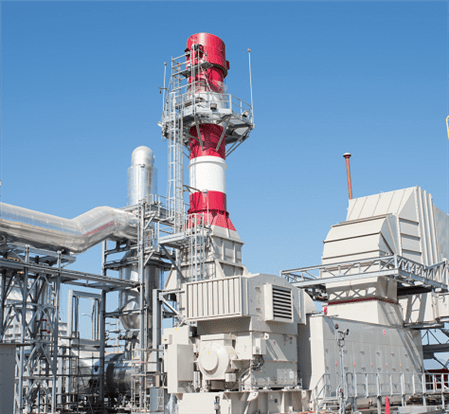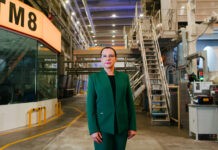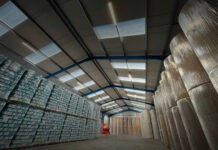Cogeneration is the key to boost already impressive growth across Latin America for an innovative company which faced tough energy issues by building in efficiency at the design stage of its mill in Talagante, Chile. A TWM report.
CMPC has been repeatedly hitting the headlines over the past 12 months or so. The Chilean pulp and paper company has announced a series of new business strategies, not least with the changes made amongst its top executives: Luis Felipe Gazitúa has been hired as president, Gonzalo Darraidou is now chief executive, while Luis Llanos has taken over as CFO.
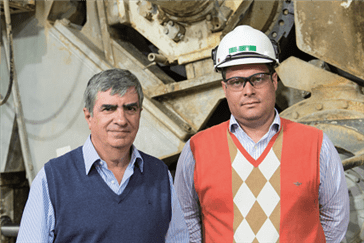
Its financial results have so far successfully reflected the changes: results for the third quarter of 2015 showed EBITDA 34% higher compared to a year ago at $337 million, with growth driven by an increase in all business areas. It traded 707,700 tonnes of market pulp in the period, up 40% over the previous quarter and 28% higher year-on-year.
Over the past year it has also been involved – and since excluded – in accusations over promoting a tissue cartel together with SCA in Colombia, allegedly controlling prices in the country from 2000 to 2011 and together dominating 90% of the market. In May, CMPC was excluded from the allegations after competition authorities confirmed collusion by four other tissue producers.
Throughout its 22 tissue machines across Argentina, Brazil, Chile, Colombia, Mexico, Peru, Uruguay and Ecuador, it has an impressive total production capacity in excess of 600,000tpy. The business has also been busy announcing a series of investments across several of its sites: a $139m tissue investment at its Cañete site in Peru was announced in August 2015, $96m was implemented a month earlier with the start-up of a 50,000tpy tissue paper machine at Altamira, Mexico, and it has upgraded PM11 at its Caieiras, Brazil-based site.
Its products are now sold under brands such as Elite and Confort to customers across the whole of Latin American’s consumer and AfH markets.
Since the game changing start-ups of its two greenfield plants in Talagante, Chile, and Zarate, Argentina in 1995, CMPC Talagante mill manager Felipe Harding De La Fuente says the expansion “has been enormous” and is set to continue: “Depending on the country, CMPC tissue has had an annual growth between 5-15% over the last ten years.”
The Talagante mill in particular has played a key role in the company’s growth. Located 50km south west of Santiago, Chile, it has received several large investments over the past few years. Surrounded in an open landscape close to vineyards and the Maipo River and producing 105,000tpy of tissue for the local market, it specialises in the production of high quality tissue products including napkins and other niche quality products.
Carlos Hirigoyen, corporate director of industrial development, CMPC Tissue, told TWM that the location of the mill is a strategic one: “We wanted a site close enough to the city of Santiago where the main consumption is. We also searched for good access of typical needs for a mill, such as energy, electricity, gas and workforce. And very importantly, we needed somewhere with enough capacity to grow, and so we purchased 100 hectares of farmland here in 1993.”
The site has three tissue production lines and a number of converting lines for roll products, folded and unfolded products like napkins, facial and hankies for the AfH and the consumer market. Its own cogeneration system was started up in January 2016 and it has also invested in a state-of-the-art water effluent treatment plant.
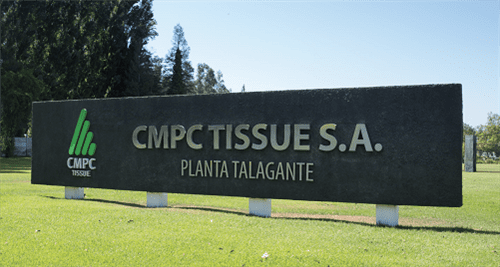
Harding adds that the site’s PM3, an Advantage DCT 200 machine, currently holds the highest tissue production capacity record in Chile. The 5.5m-wide, Valmet-supplied machine was started up in 2013 and has reached a maximum of 5,600 tonnes in a month with 89.7% efficiency. “In those figures nothing is discounted,” he says. “We are counting 30 days a month and full time operation. Even in times of external energy shortage we haven’t seen a lack of efficiency.”
The cogeneration system has also made a big impact on production efficiency, and Hirigoyen says that having very energy efficient operations is key for the site and the company’s business strategy: “Chile does not have oil or other conventional energy sources except for hydroelectricity, but many of the new hydroelectricity projects have been stopped due to environmental issues. In a few years the energy cost have escalated rapidly and today we probably have the highest energy prices in Latin America. So for us it is a must to be as energy efficient as possible.”
The business has always tried to be one step ahead regarding environmental demands: “At the time when we were designing the mill, Chile didn’t have a real environmental legislation but a law was being discussed in the parliament. We decided to work according to the proposed law so when it came into force we were already compliant with the new legislation.”
TM3 is now 20-25% less energy consuming than the site’s other machines when producing the same kind of grades. “From a business perspective it is very important to be environmental sustainable in a long term. The company has and continues to be pioneers in Chile,” Hirigoyen adds.
|
|
Empresas CMPC Factfile Products: pulp, tissue, forestry and paper and packaging products. Location: Chile, Brazil, Argentina, Mexico, Peru, Colombia, Uruguay and Ecuador Founded: in 1920 in Chile Staff: 16,000 Customers: across 45 countries across the world. |






















